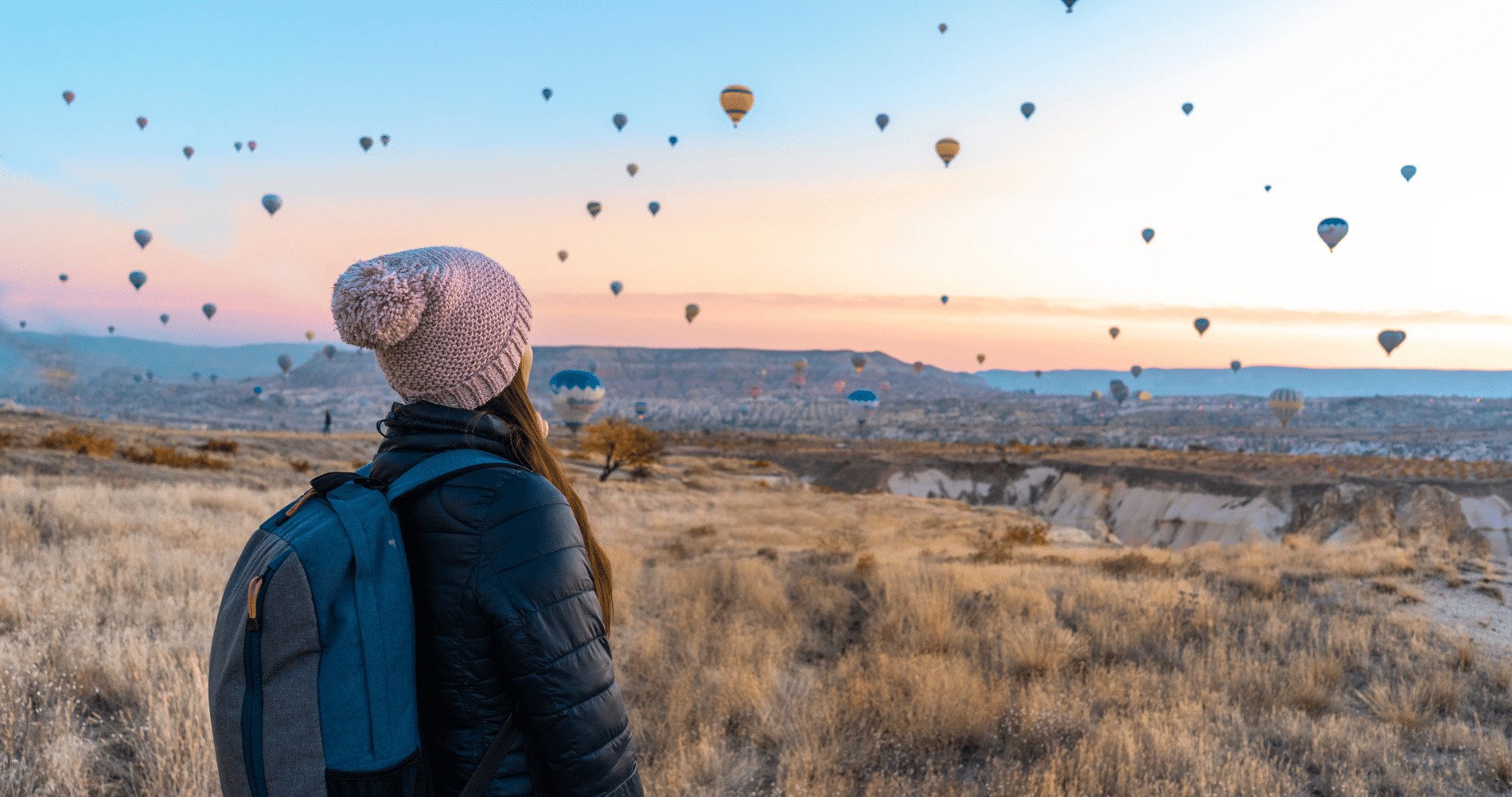
Travelling may not just be about going somewhere for a change of scenery and leaving familiarity, but also handling awkward, stressful, and out-of-the-ordinary situations on your own and sometimes with limited language skills.
In the course of your trips domestically and abroad, you have likely haggled, negotiated, confronted people, or did something crazy. You have discovered new interests or motivations like becoming a pro wakeboarder or saving up for a beach bungalow.
It’s those discoveries, thoughts, and experiences that help shape and strengthen your character. Nuggets of wisdom and realisations from travels influence your life, the daily nitty-gritty and the future of your career.
Let’s explore why travel is important for self-improvement and growth in seven reasons.
1. Travel makes you happy
It can be the food, culture, history, nature, people, or the experience — there is joy in travelling. People who frequently travel expressed more satisfaction with their lives, according to a study participated by 500 Taiwanese adults.
Moments of awe, reverence, serenity, and nervousness from seeing a field of flowers or joining the Shibuya Crossing scramble become memories that make you smile in the middle of a busy day at work. These feelings can contribute to your general well-being in the long run.
Flying in and out of countries now has restrictions for public health and safety. However, vaccines seem to ease concerns, and it’s expected for travel to pick up in the coming months.
Even if you can’t travel as much for other reasons, go ahead and plan your holiday; the planning and anticipation can still bring happiness to you, according to a study.
2. Travel encourages resourcefulness.
Baggage fees and freedom of movement issues compel you to save precious space for essentials and souvenirs. Instead of wishing you should have brought this or that when an inconvenience arises, try solving the problem first with whatever’s available.
Do you want to stay fit while travelling? Use a towel absent a yoga mat. Then, walk, and find the nearest park that offers free exercise equipment. Expect more of these, which you can solve creatively.
Resourcefulness is a life skill, and it is associated with creativity, along with the critical skills:
- Adaptability
- Innovation
- Optimism
- Open-mindedness
3. Travel enhances your communication skills.
With online bookings and apps, the need to speak may not be as much. Still, part of the experience of travelling is meeting new people and engaging them in friendly chit-chat.
Making small talk develops your skills in handling conversations, building your confidence in talking, listening, and being mindful of non-verbal cues.
After all, not everyone is comfortable with small talk, let alone converse with strangers, for safety reasons. It makes you think of ways to better approach people, earn their confidence, and respect their personal space.
You can leverage those experiences when you converse with people you met first in professional settings, break the ice in virtual meetings and other social interactions.
4. Travel tests your ability to plan.
Having a plan removes or at the very least reduces uncertainties, especially when you travel when things sometimes take a different turn.
Creating an itinerary, filling it with details, budgeting, organising the first day of your trip and so on — it’s a step-by-step process that requires patience, research, attention to detail, and foresight.
Did you buy insurance to cover medical expenses or lost gadgets? What’s your Plan B for a cancelled reservation? Have you set aside money in case you get stranded in the airport?
Surviving those traveller nightmares could make a better planner out of you. It can be scheduling your workdays to optimise productivity or setting long-term goals for your career.
5. Travel lets you say yes to spontaneity.
Your itinerary is not complete without room for spontaneity. Treat yourself to pleasant surprises, from exotic foods to rare finds. You’ll never know the hidden gems of Paris unless you roam around.
Others take spontaneity to a different level by not doing much planning and making decisions on the spot. Spontaneous travel is an anticipated trend this year following months of staying at home and feeling bored during quarantine.
Being spontaneous breaks the monotony and uniformity, pushes you to be more creative and flexible and relieves stress and boredom. You are also bound to be happier, which goes back to the no. 1 point on why travel is important.
6. Travel exposes you to the real world with real people.
Documentaries and travel shows take you to otherworldly landscapes or the best side of town. Upon arrival, you’ll find reality as what it is with no touch-ups and post-edits.
If you have a chance to stay in a community as a volunteer or an immersive traveller, you’ll see how local people live and interact with their environment.
These experiences heighten your social awareness and make you more tolerant of other perspectives, beliefs, and values. Your way of life, culture, and background may differ from theirs, but you can learn from each other.
Emotional intelligence will not only help you become a great person but a great leader who understands the needs of their team members.
7. Travel teaches you about yourself.
Travelling is experiential learning; it teaches you concepts as they happen in the actual setting and assigns you problems to resolve with no textbooks or manuals.
What’s more, you discover things about yourself in the process. For example, you can confirm that you hate crowds or that you enjoy talking to people. You can also be more patient, kinder, and calmer when facing situations that would have stressed you out.
There’s so much to learn about yourself and your surroundings. Speaking of education, enrol in cooking classes and short-term courses available in the destinations you visit.
Where Do You Go Next?
Travelling helps you relax, decompress, and do so much more. It offers you opportunities to make new friends and collect experiences that can enrich your personal life and career.
- Soft skills will never run out of importance, especially in the workplace. Problem-solving first, use, decision-making, creativity, communication, resourcefulness, planning, and spontaneity help you set and achieve outcomes.
- Being aware and open-minded helps you strive to improve for yourself and others.
Here’s to vacations when it’s safe to travel!
Don’t forget to share this post!



